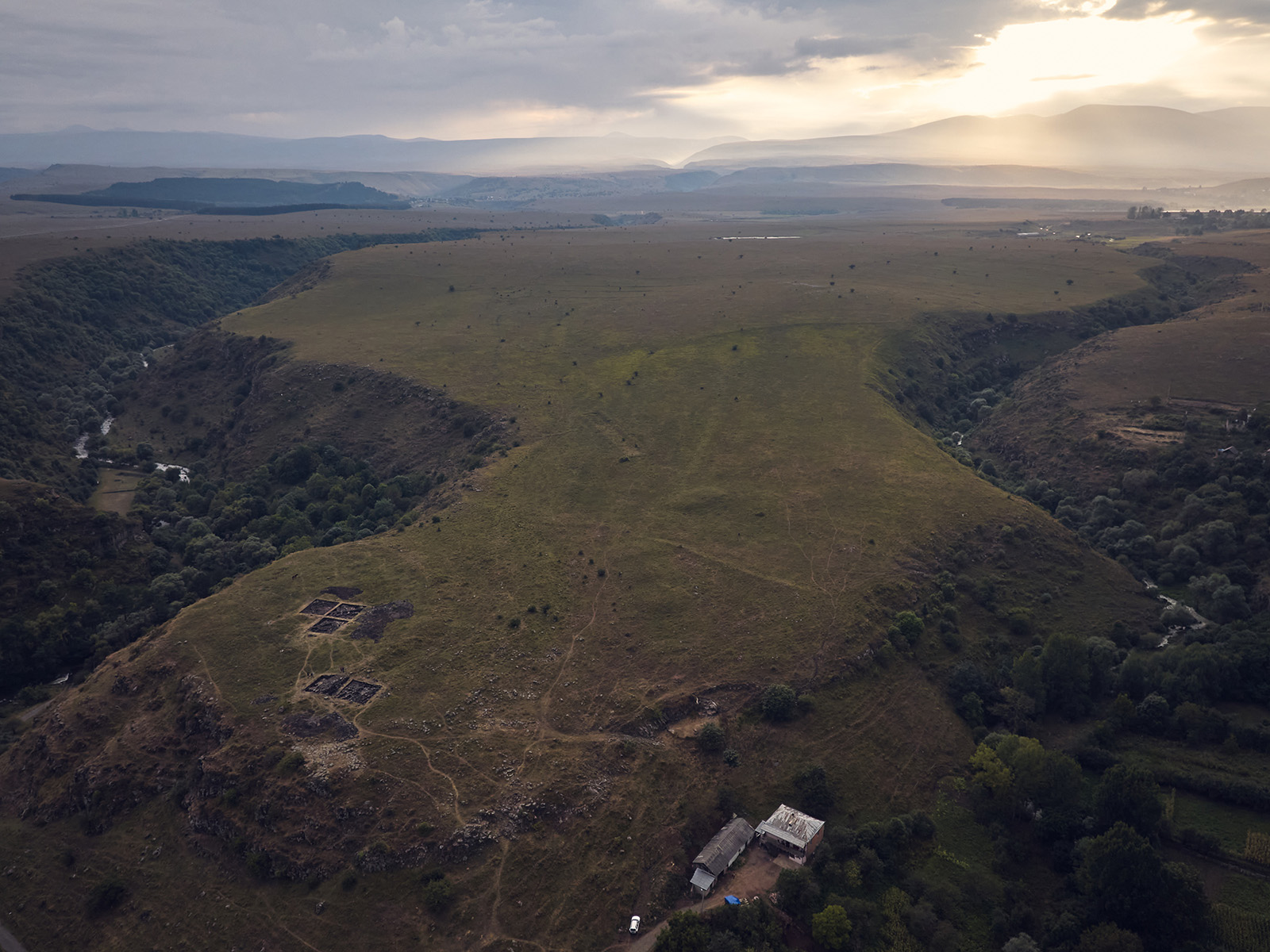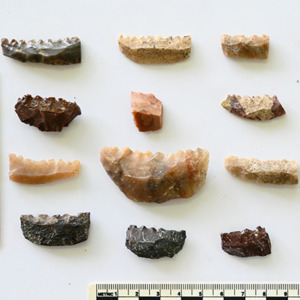I couldn’t pass up the opportunity to excavate an Iron Age fortress in the Caucasus during my MSc
28/08/2024

When I was first asked whether I was interested in taking part in an archaeological excavation in Georgia, my first thought was that it didn’t appear to be a natural fit to my Forensic Science degree. Despite this, my background in archaeology meant that I was keen to get involved in archaeological projects to broaden my skill set and knowledge, and I signed on to join the project after my thesis was completed.
The project director, Dr. Nathaniel “Nat” Erb-Satullo, Senior Lecturer in Archaeological Science at Cranfield Forensic Institute (CFI), had briefed me on the archaeological context and excavation plan for this season, however nothing had prepared me for the scale of this Late Bronze Age / Early Iron Age site. The size of the six trenches that had been opened immediately made it clear that this site would be completely different from any others that I had excavated, revealing vast dwellings and domestic spaces that offered a unique insight into people who lived there more than three millennia ago. This project offered a unique opportunity to explore and further understand a key transition point in the development of metallurgy and new technologies in the Caucasus through excavation.
Archaeological excavation allows participants to get as close to the past as possible by physically discovering, uncovering, and touching the items that ancient people left behind, and it really is a privilege to take part in projects like this. During the excavation, I had the opportunity to excavate different areas within the trenches which represented different stages of occupation of the site, and it was fascinating to see the different types of material culture – ceramics, obsidian, bone – that were present in different phases, allowing me to gain an understanding of what life would have been like during these periods.

A collection of artefacts found at the site
I was astounded by the quality of preservation of many artefacts, including intact ceramic vessels, sharp obsidian blades, and gleaming beads. It was a great opportunity to be able to get involved in finds processing, photography and cataloguing with the laboratory team whilst also piecing together ceramic vessels from sherds to physically reconstructing domestic aspects of the past. I particularly appreciated how Nat took the time to explain to me the theories behind different artefacts and their link to the wider trade connections and metallurgical development of the Late Bronze Age / Early Iron Age period.
The team consisted of a diverse range of archaeologists from institutions in the United States, the UK, Turkey, and Georgia, who each brought unique perspectives, experiences, academic knowledge, and archaeological skill-sets to the field project. I was also able to meet and connect with Cranfield alum from the Forensic Programme who were part of the team, and it was great to hear how their careers have progressed since graduating.
The project was based in a small town, in the highlands of southern Georgia, and we worked closely with members of the local community, who cooked for us and assisted with the excavation and processing of finds. This provided us an opportunity for new members of the team to learn about the cultures (Georgian, Svan, Azeri) of people living in the area around the site. For example, we had a supra (feast) at the end of the excavation, hosted by a tamada (toastmaster) and featuring a series of elaborate, extended toasts: (e.g. to God, to Georgia, to peace, and to the deceased). These interactions with the local community and their culture were invaluable and enriched the experience.
Participating in this excavation has been a great complement to my Master’s studies, and provided me with many experiences that will be invaluable moving forward in my career; not just the opportunity to excavate such a rich archaeological site with deep time-depth, but also the ability to interact and connect with many like-minded individuals from all walks of life.
Categories & Tags:
Leave a comment on this post:
You might also like…
Company codes – CUSIP, SEDOL, ISIN…. What do they mean and how can you use them in our Library resources?
As you use our many finance resources, you will probably notice unique company identifiers which may be codes or symbols. It is worth spending some time getting to know what these are and which resources ...
Supporting careers in defence through specialist education
As a materials engineer by background, I have always been drawn to fields where technical expertise directly shapes real‑world outcomes. Few sectors exemplify this better than defence. Engineering careers in defence sit at the ...
What being a woman in STEM means to me
STEM is both a way of thinking and a practical toolkit. It sharpens reasoning and equips us to turn ideas into solutions with measurable impact. For me, STEM has never been only about acquiring ...
A woman’s experience in environmental science within defence
When I stepped into the gates of the Defence Academy it was the 30th September 2019. I did not know at the time that this would be the beginning of a long journey as ...
Working on your group project? We can help!
When undertaking a group project, typically you'll need to investigate a topic, decide on a methodology for your investigation, gather and collate information and data, share your findings with each other, and then formally report ...
From passion to purpose: My journey at the Pinnacle of Aviation
By: Sultana Yassin Abdi MSc Air Transport Management, Current Student Born and raised in the vibrant landscape of the UAE, with roots stretching back to Somalia, my life has always been ...






